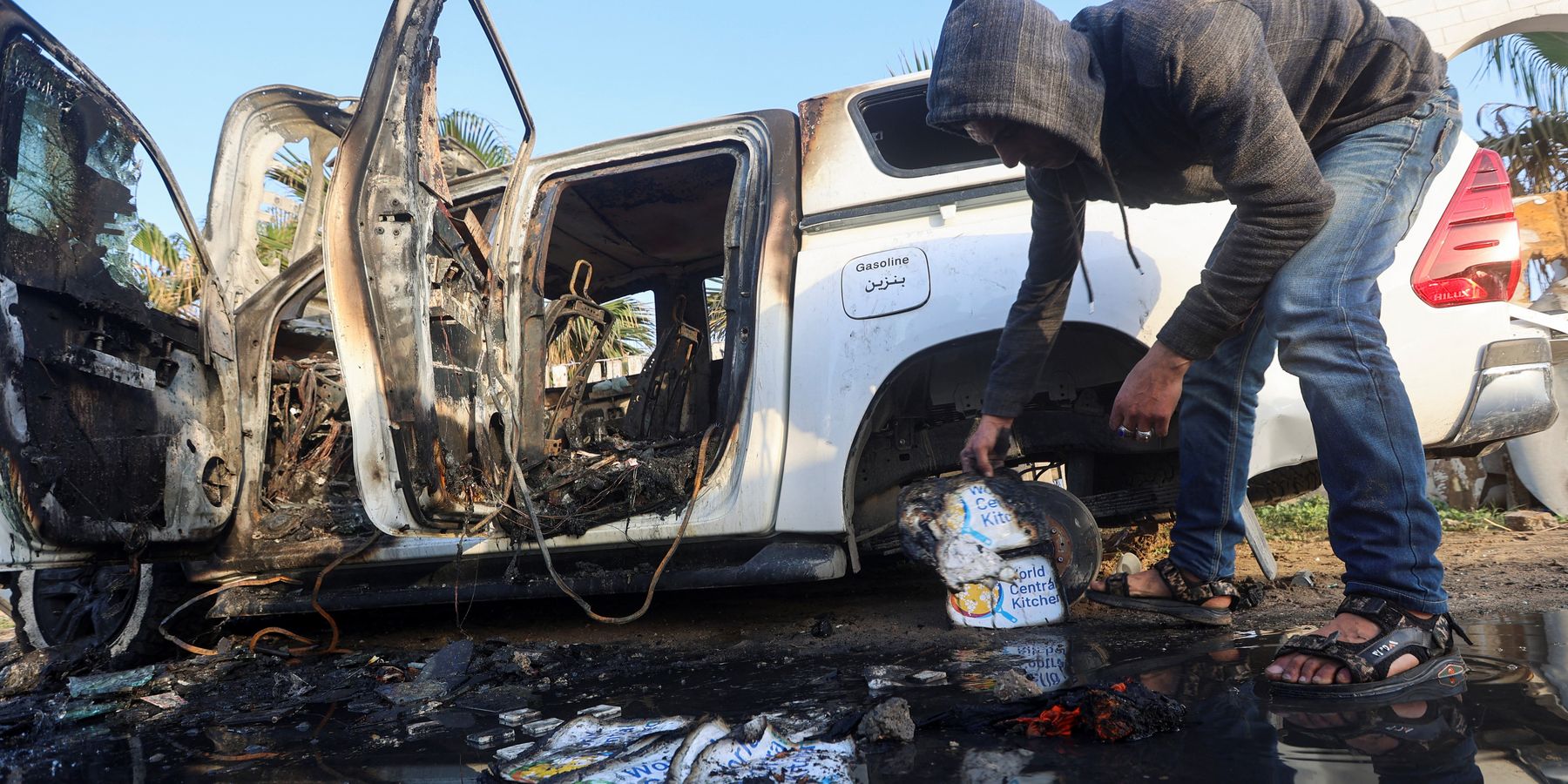UPDATE 4/3 6:45 a.m. EST: White House National Security Spokesman John Kirby, when asked by reporters how Monday's killing of aid workers delivering food from the maritime corridor might affect the U.S. military's own planned aid surge, said troop safety was paramount to the mission.
“We’re well aware that Gaza is a war zone, and frankly that is what makes it so challenging to get humanitarian aid to people in need there,” Kirby said Tuesday.
“Protection of our troops … will be first and foremost on the president’s mind, as well as our military leaders, to make sure that they can build that pier, assemble it and operate it in a safe way.”
UPDATE 4/2 8:50 a.m. EST: Israel defense sources are now confirming their responsibility for three consecutive air strikes that left seven Word Central Kitchen aid workers dead on Monday night.
Several aid workers from an internationally recognized private aid organization that would no doubt be a key player in Washington’s maritime humanitarian aid project were blown away and killed by Israeli forces yesterday after bringing food to warehouses on the Gazan coast.
According to reports based in part on video footage, seven individuals working for World Central Kitchen, all wearing protective gear with the organization's logo displayed, were killed by an airstrike while “leaving the Deir al-Balah warehouse, where the team had unloaded more than 100 tons of humanitarian food aid brought to Gaza on the maritime route,” according to Erin Gore, CEO of the charity, which was founded by celebrity Chef Jose Andrés and is responsible for delivering millions of meals to Gazans since the war began.
Gore said the charity had coordinated its movements with the Israel Defense Forces (IDF). The Israeli military expressed “sincere sorrow” for the deaths but did not take direct responsibility. It says it has launched an investigation at the “highest levels” into the matter.
The charity, which in the last several weeks has delivered hundreds of tons of food in two shipments and offloaded it onto a makeshift jetty it helped to build on the Gazan beach, is suspending its operations in the country. Andrés, whose charity has delivered meals to conflict and disaster zones all over the world, said it was not the first time its workers had been attacked in Gaza.
So what does this bode for the U.S. troops who will be building a causeway just off the beach in order to bring aid — much of it supplied by major aid organizations like World Kitchen — into Gaza in the near future? The project is supposed to be finished in mid-May, though the ships haven’t yet arrived in the region to start building the infrastructure for it. The details of who will be providing the security for the operation (since President Biden has insisted no troops will be on the ground) are sketchy, and lawmakers and even former military officers are expressing concern. Unconfirmed reports suggest the IDF will be securing the area, others say private contractors will be filling gaps.
After what happened yesterday, should it make anyone feel better that the Israelis may be overseeing an operation in which American personnel are building/manning a causeway and directing aid shipments in what is essentially a combat zone?
Jerry Hendrix, a retired naval officer and senior fellow at the Sagamore Institute, told the Washington Post this week that the causeway will be “highly vulnerable,” calling the plan “stupid.”
“There’s so much downside risk on this for what I think is relatively small upside in terms of potential to relieve the supply shortage and food shortage in the area,” Hendrix said.
Gen. Charles Q. Brown Jr., chairman of the Joint Chiefs of Staff and Biden’s top military adviser, when asked about the security of the project last week said that personnel safety is “at the top of the list anytime we put our forces any place in harm’s way.”
Viewing the bloody passports of its workers, World Kitchen officials likely felt the same way about its personnel.
"I am heartbroken and grieving for their families and friends and our whole WCK family," Andrés later wrote in a social media post. "These are people … angels … I served alongside in Ukraine, Gaza, Turkey, Morocco, Bahamas, Indonesia. They are not faceless … they are not nameless."
- Where are the US ships on the Gaza aid mission now? ›
- Alarming lack of detail in military's Gaza aid project ›
- Military pier project in Gaza could be 'on ice' | Responsible Statecraft ›
















